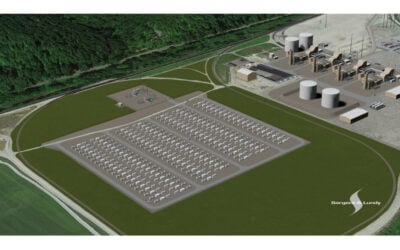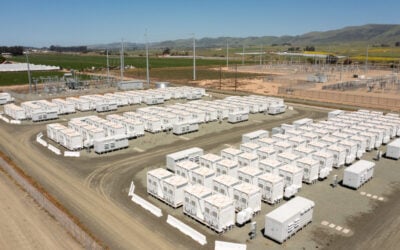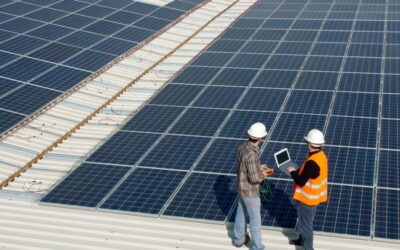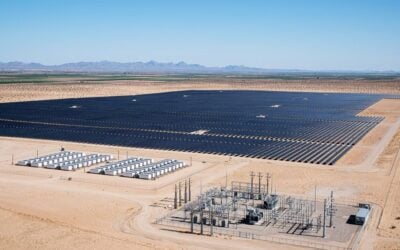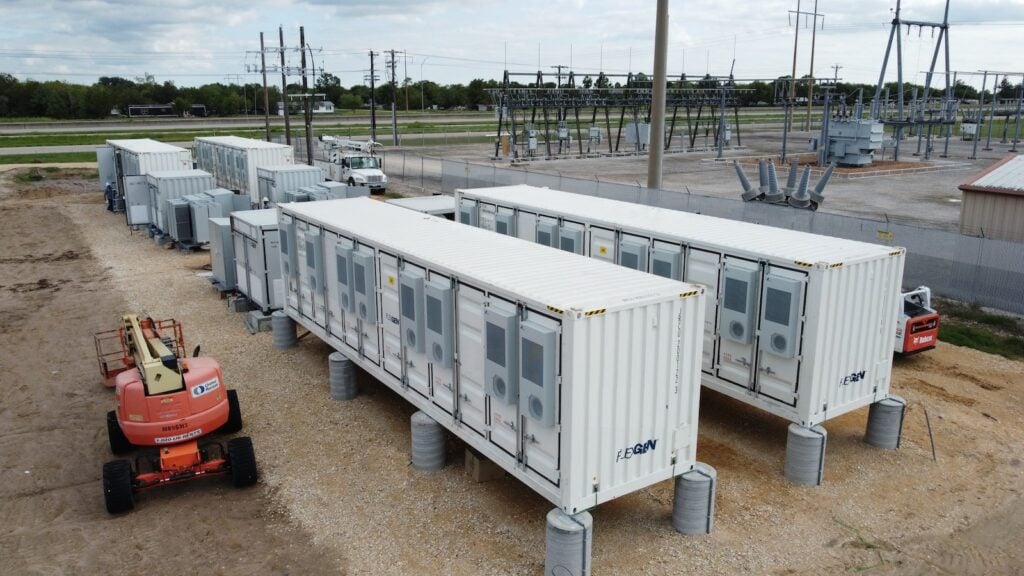
Large-scale battery storage systems will be used to increase the efficiency of natural gas peaker plants in California, resulting in reduced emissions.
Battery storage solutions and software provider FlexGen announced this morning that it has been contracted by independent power producer (IPP) Middle River Power for the projects.
Enjoy 12 months of exclusive analysis
- Regular insight and analysis of the industry’s biggest developments
- In-depth interviews with the industry’s leading figures
- Annual digital subscription to the PV Tech Power journal
- Discounts on Solar Media’s portfolio of events, in-person and virtual
FlexGen will provide battery energy storage system (BESS) technology and the relevant software, providing 420MW/420MWh of BESS for four Middle River Power (MRP) peaker plants.
Gas peaker plants, as the name suggests, are called into action during relatively short periods of peak demand. Despite low capacity factors, which can mean they are only run a handful of times throughout the year, and rarely for longer than a few hours at a time, they can be among the grid’s most polluting assets.
However, they are still the go-to choice for filling in capacity gaps between variable solar PV and wind generation periods in many parts of the world. Until they can be quit completely and perhaps replaced with renewables-plus-storage, equipping them with batteries may be the next best option.
According to Middle River Power’s website, the company, owned by investment firm Avenue Capital Group, has a portfolio that includes 12 peaker plants in total, 10 of which are in California.
The project announcement today did not specify which of those plants will be due for a BESS upgrade, but a source close to the two companies did confirm to Energy-Storage.news that these will be existing plants in the MRP fleet.
The battery systems will be co-located on the same sites as the peakers, sharing the simple cycle gas turbine facilities’ interconnection to the grid. Essentially the batteries will perform a similar role to the peakers in outputting to the grid at times of peak demand, the difference being that they will be charged during off-peak hours, when renewable generation is more abundant, rather than burning fuel.
They will deliver ancillary services such as frequency regulation to help balance the grid, and their deployment will result in the gas plants being called on less often, which not only results in reduced greenhouse gas (GHG) emissions and air pollution, but also therefore in reduced operational costs for MRP.
FlexGen, which in September contracted with manufacturer CATL to purchase 10GWh of complete BESS solutions including lithium-ion cells, said its energy management system (EMS) and software platform, Hybrid OS, is key to the value proposition.
While the source said this project was to their knowledge the first of its kind, batteries have been used to make different kinds of thermal power plants more efficient before.
One historical example is what is thought to be the world’s first grid-connected Li-Ion BESS, which was deployed at a coal plant in Chile in 2008. Meanwhile, FlexGen has itself delivered a BESS project in Indiana where batteries were used as an efficient and cleaner way to black start a diesel power plant for a utility company in the US state.
One other California project Energy-Storage.news reported on early last year will see battery storage deployed at an 800MW peaker plant, but for a different purpose to FlexGen-MRP’s. In that instance the batteries, as with FlexGen’s Indiana project, will be used as the black start backup source for the thermal power generators.
Energy-Storage.news’ publisher Solar Media will host the 5th Energy Storage Summit USA, 28-29 March 2023 in Austin, Texas. Featuring a packed programme of panels, presentations and fireside chats from industry leaders focusing on accelerating the market for energy storage across the country. For more information, go to the website.

